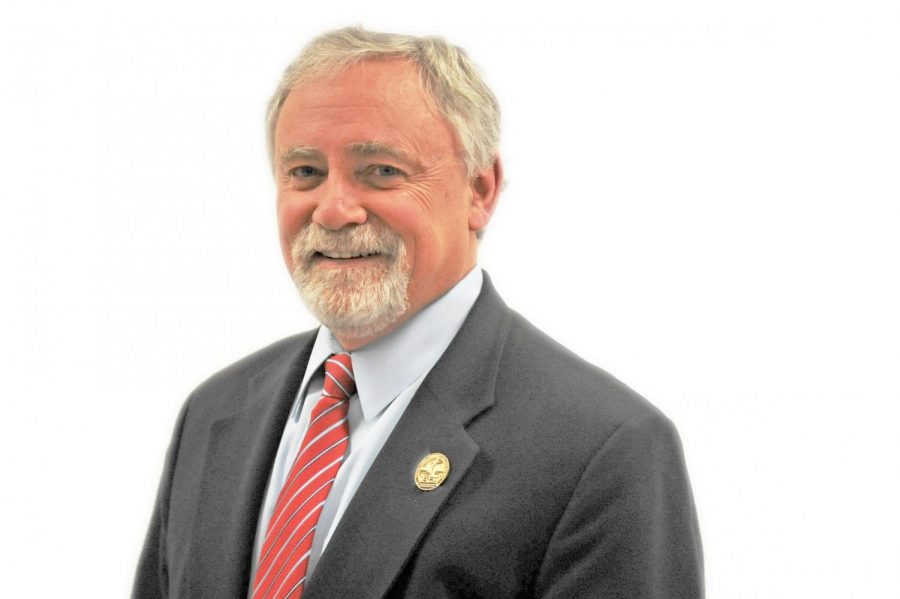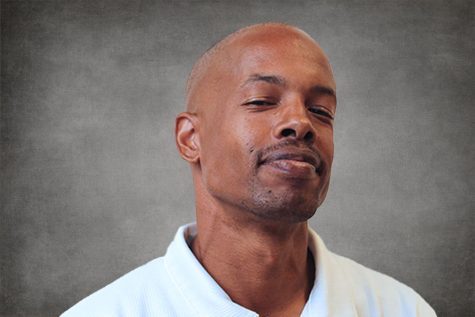Wood plans transition period for campus
Chancellor sets plan in motion for district
[email protected] / The Advocate
Contra Costa Community College District Chancellor Fred Wood said returning CCC President Mojdeh Mehdizadeh to her previous position is helpful to the District Office.
Mar 1, 2018
Change is inevitable, but in recent years Contra Costa College has been a campus defined more by changes in leadership positions, than the negatively stigmatized reputation that its students and employees constantly work to shed.
The decision to return Contra Costa College President Mojdeh Mehdizadeh to her position in the District Office as executive vice chancellor of education and technology mid-semester left many at CCC with more questions than answers.
Mehdizadeh said she consulted with Contra Costa Community College District Chancellor Fred Wood and was completely on board with the decision, however, it is important to know from Dr. Wood why the move had to happen now and what his vision for the campus is moving into the future.
“Mojdeh (Mehdizadeh) is a fabulous president, but she is the best executive vice chancellor in the state,” Dr. Wood said. “From the intellectual side of it, I think she sees a hole at the district. She sees how she can help all students across all three colleges and she sees something that she built that is struggling. She believes, as I do, that technology wedded with academics is the way the world is moving.”
Since the vice chancellor position Mehdizadeh left to become interim president of CCC has not been changed, Wood felt the move would be an appropriate decision for him to make without Governing Board approval.
Wood said if the position had changed in any way he would have brought the proposal to the Governing Board.
The chancellor also said that the timing of the move is solely to accommodate the schedule of interim President Chui L. Tsang.
Because of prior engagements and a previously scheduled family vacation, Tsang is only able to serve as interim from March through September.
“He (Tsang) is not interested in the position full time, he’s retired,” Wood said. “But he is interested in helping this place and this community and these students and this is when he is able to do it.”
While the timing of the move may have come as a shock to some, to others the shift only cements a pattern of instability that shrouds the campus.
History, anthropology and geography department Chairperson Manu Ampim said, “The move comes at a time when there are some changes happening on campus and the issue for me is black students, black faculty and staff are not being respected the way they are supposed to be.
“Diversity in hiring and other issues that the district is pushing are not being embraced like they should be.”
Wood has a larger plan in place for selecting a permanent president for CCC, one that hopefully addresses the concerns of Ampim and many others on campus.
Input from students, faculty and staff and even community members are all to have a voice in selecting the next college president, according to Wood.
Even though recent decisions have been made at CCC with minimum student representation, and even fewer representatives from the local community, Wood is confident administrators have a way to effectively engage these habitually underrepresented groups.
Governing Board Trustee John Marquez will be in charge of selecting a member from the community to be on the presidential selection committee.
Also, the chancellor hopes to enlist the recruiting firm hired to find the right candidate to do listening meetings to hear the concerns of students, employees and community members.
“What do you want to see and what type of characteristics do you think the right leader has that will do well to connect to the community. You try to bring as much of that in,” Wood said.
The chancellor says he has been made aware of concerns that have been raised regarding the insertion of people into positions of authority at CCC who do not have close ties to the surrounding community or the student population that emanates from it.
“It’s often a matter of timing, who is available and who applies,” CCC Vice President Ken Sherwood said. “My understanding coming in was that this school was really struggling because of the changes in leadership and vacancies here at the college at the time.”
As for how to reassure that the college is not on a path of disconnection based on decisions that have already been finalized, the chancellor could only say that “the proof will be in the pudding in terms of commitment.”
With programs like guided pathways and an enhanced push toward online education dragging the campus away from a community of potential lifelong learners, the need to have administrators that represent the community seems harshly irrelevant.
Although those cuts were state decisions and not made at the district level, no mention of returning to a model of supporting lifetime learners has been mentioned in the campus curriculum reconfiguration that is underway.
Before being hired at CCCCD, Wood served as chancellor at the University of Minnesota Crookston (UMC).
Despite his recent background of leading employment-based, online-centric education programs, Wood believes the top priorities for campus administrators is to have close connections with the community they serve.
“The administration, classified professionals and the faculty should reflect the same demographics as the students. Being role models, the understanding of issues, they have to connect with students,” Wood said. “I think that’s true everywhere but that is especially true in West County. They have to bring a background and understanding of this community and build from that.”



